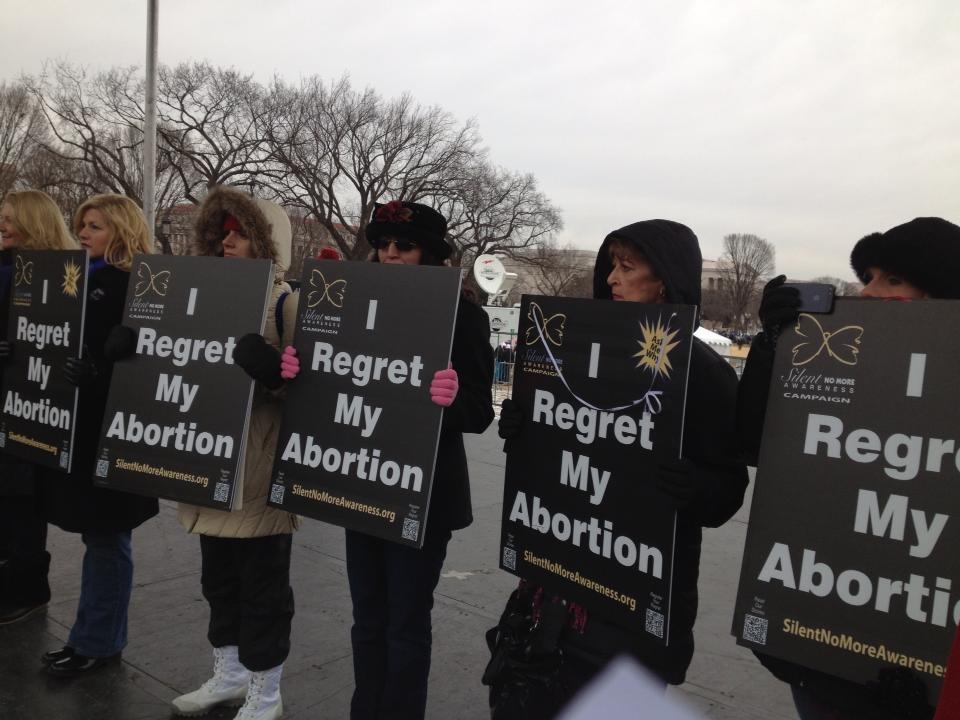Yesterday, someone shared a news article with us on our Twitter feed about a group of abortion advocates who are traveling across the U.S. to tell their abortion stories.
 The group Exhale wants its MoveOn tour to “change our country’s conversation about abortion” and to “help stop stigma and create a social climate where each person’s unique experience with abortion is honored and free from judgment.”
The group Exhale wants its MoveOn tour to “change our country’s conversation about abortion” and to “help stop stigma and create a social climate where each person’s unique experience with abortion is honored and free from judgment.”
The problem is that some abortion stories are judged and ignored by these abortion groups. The thousands of stories from women who regret their abortions aren’t welcome, because they don’t fit with abortion advocates’ narrative. These groups are, in essence, silencing some women whose abortion experiences don’t fit with their agenda.
For many years, pro-life advocates have worked to free women to share their abortion stories that don’t fit the abortion agenda. The Silent No More Awareness Campaign welcomes women and men to talk about their experiences in an effort to help make the public aware of the devastation abortion brings, according to the group’s website. Since the organization began in 2002, almost 6,000 people have shared their stories.
Here is just one story from Maggie in Pennsylvania (read her full story here):
When my boyfriend cheated on me almost 30 years ago I thought it would forever remain the darkest day in my life. It didn’t compare to my Abortion that followed for this reason.
After my abortion I was disabled, the secrecy magnified my shame and became toxic to my health and spirit.
My healing came while working at a Gift Shop as a young girl entered the store contemplating having an abortion. Immediately I shared my testimony with her hoping to spare her from a lifetime of pain. She thanked me for my testimony but left undecided. About a year and a half later I heard a knock at the Gift Shop door. I began to shake because there to my surprise she stood in front of me with her beautiful 6 month bouncing baby boy as her words will forever echo in my heart. “I want to introduce my son to the woman who saved his life.”
Renewed, I vowed to do everything within my power to help prevent other women from suffering as I did, as I am “Silent No More.”
Thank you, Maggie! And thank you to all the brave women and men who are going against the grain and sharing their stories of healing after abortion.

